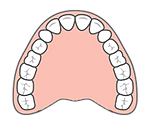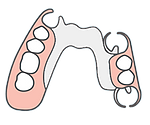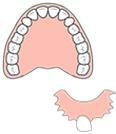Types of Dentures
There are several different types of dentures depending on your situation. We recommend booking a FREE CONSULTATION so we can walk through your treatment options (many of these options may not be relevant to your situation).
In addition to new dentures, Minuk also adjusts, refits / reline dentures, repairs dentures & adds soft denture liners. Dentures should be relined every 2 years and replaced every 5-6 years.
The four main types of dentures are:
Complete Dentures
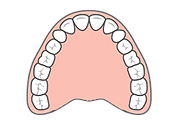
A complete denture replaces all of your teeth. Beyond appearance, a complete denture enables you to chew your food properly and speak easier.
If you need to have some teeth extracted / removed, see temporary dentures. If you are interested in a lifetime solution to dentures, see implant dentures.
There are 2 types of complete dentures: standard and precision. The main difference between the dentures are:
- The number of measurements taken (how well the denture functions)
- The material of the denture base (how well the denture fits the gums in your mouth and how dense / strong the material is)
- The material of the denture teeth (how wear resistant the denture is, the appearance of the teeth / layers)
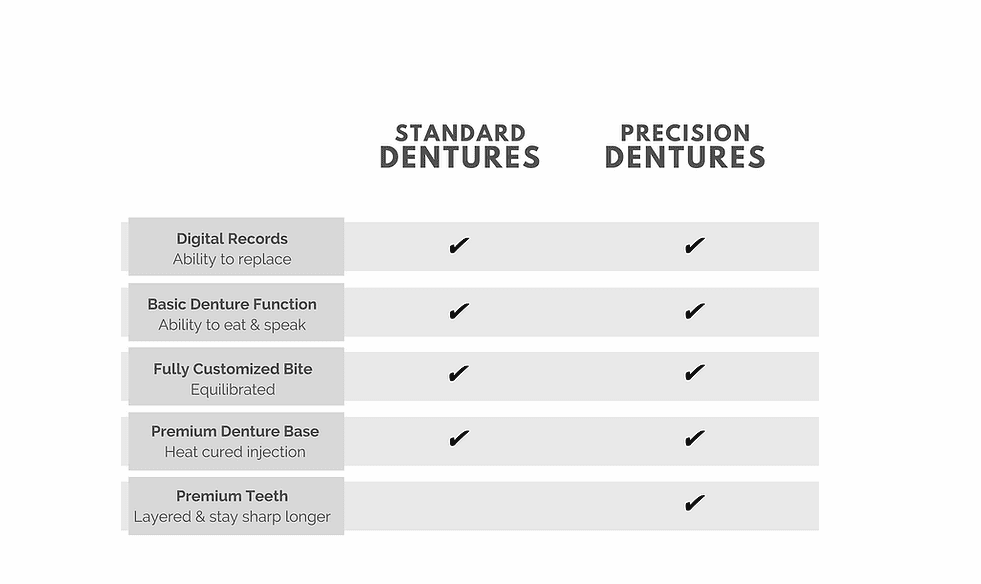
Learn more about Complete Dentures during YOUR
Natural
Looking
Premium materials mimic
natural teeth
Digital
Denture
Technology
Dentures aremilled on machines
10X more accurate
that a human hair.
Stain Resistant
Teeth aremilled out of stain
resistant materials.

Strong
Teeth aremilled together.
No bonding
agents used.
Denture Base
High ImpactDenture Base
material
Learn more about Digital Denture during YOUR
Partial Dentures
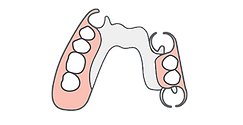
A partial denture replaces some of your teeth. Beyond appearance, a partial denture enables you to chew your food properly, speak easier and maintains the health of neighbouring teeth.
If you need to have some teeth extracted / removed, see temporary dentures. If you are interested in a lifetime solution to dentures, see implant dentures.
A partial denture maintains the health of neighbouring teeth by preventing them from drifting. Without a partial denture to maintain the spacing, neighbouring teeth begin to shift making them more difficult to clean and more lucky to be lost.
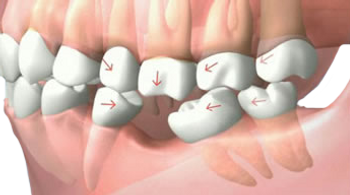
There are 2 types of partial dentures: Acrylic & Cast Partial. The main difference between the dentures are:
- Acrylic vs. Cast Partial (Strength and longevity of denture )
- The material of the denture teeth (How wear resistant the denture is, the appearance of the teeth / layers)
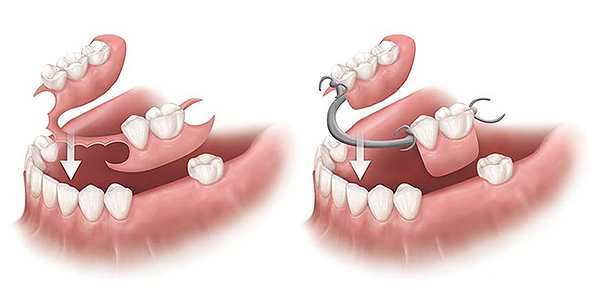
Acrylic Partial
Generally considered a temporary denture. Without a metal substructure, dentures are much more prone to breaking.
Cast Partial
Considered a long term denture with an average use of 5 years. Cast partial dentures reduce the shifting of neighbouring teeth.
Implant Dentures

If you are looking for a lifetime solution to dentures, dental implants / denture implants may be for you.
Many patients select dental implants to avoid common denture problems and bone loss. Dental implants have now become the standard of care for replacing missing teeth.
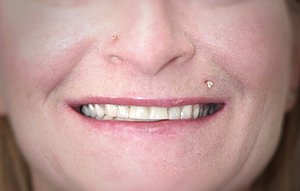
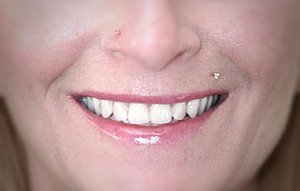
“I wore dentures for 3 years and always found them painful and inconvenient. You have changed my life. I thank you all from the bottom of my heart for my new smile. You gave me a permanent solution to what I thought was going to be a life long problem.”
Shelia
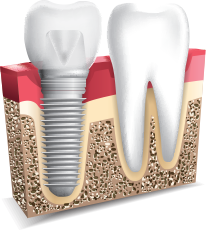
A dental implant is essentially an artificial tooth root. By attaching a small implant to the jaw, your dental restoration is fixed in place, much like a tooth. Like healthy teeth, dental implants can last a lifetime with success rates above 98%.
While dental implants do cost more than dentures initially, dental implants can also eliminate the need for ongoing expensive treatment to maintain dentures. Should you lose more teeth in the future, a dental implant can be used to support any dental restoration.
Temporary Dentures
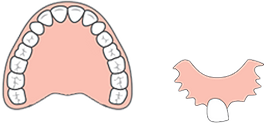
A temporary denture is generally worn for 3-12 months after teeth have been extracted. A temporary denture is also referred to as a surgical denture or immediate denture.
After teeth have been extracted, the bone and gums beneath can shrink as much as 25% in the first year. After the first year the rate of change decreases significantly. In the first year, it can be very difficult to make an esthetic denture.
We often bundle a temporary denture with a permanent denture in order to provide the best results.
See First Time Dentures for more information.



